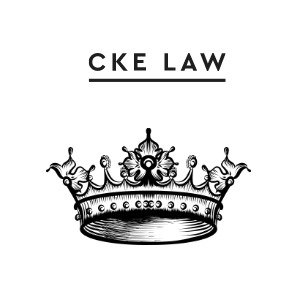Best Bankruptcy Lawyers in Manchester
Share your needs with us, get contacted by law firms.
Free. Takes 2 min.
List of the best lawyers in Manchester, United Kingdom
About Bankruptcy Law in Manchester, United Kingdom
Bankruptcy in the United Kingdom, including Manchester, is a legal status that usually lasts for a year and can be a suitable way of clearing unsecured debts that you can't pay. During bankruptcy, assets you own, such as your house or car, will usually be sold to pay off your debts. This process is enacted and managed by a trustee, which either an Official Receiver or an insolvency practitioner. This is done under the Insolvency Act of 1986, which sets the criteria, procedure, and effects of bankruptcy.
Why You May Need a Lawyer
Engaging a lawyer can be essential when facing bankruptcy due to the complexity of the laws and the potential implications on your finances. Common situations where you may need a lawyer include being unable to repay debt, creditor's threats of legal action, the need to stop foreclosure on a mortgage, when there's a likelihood of properties being seized, and when faced with large business-related debts.
Local Laws Overview
The bankruptcy laws and processes in Manchester are made to align with the broader UK laws as set out in the Insolvency Act. This includes granting a bankruptcy order if you're unable to repay unsecured debts totaling £5,000 or more, handling of assets by the appointed trustee as well as restrictions that are imposed on the bankrupt individual during and following bankruptcy. These restrictions may include limited access to credit and cessation of your business operations.
Frequently Asked Questions
Who can file for bankruptcy?
Any individual can file for bankruptcy in Manchester provided they owe at least £5,000 and have little to no realistic ability to pay it back.
Will I lose my home if I go bankrupt?
If your home is considered an asset, it may be sold to repay your creditors. However, your trustee must consider your family's need for a place to live.
Can I be made bankrupt without my knowledge?
Before being made bankrupt, you will receive a statutory demand as a formal warning from the creditor. If you haven't responded or settled the debt, they can apply for your bankruptcy.
What happens to my business if I go bankrupt?
If you own a business it may be sold. Your ability to hold certain positions within the company or form a new company may also be affected.
How can I get out of bankruptcy?
Typically, the bankruptcy order lasts for one year. You will be released from your bankruptcy restrictions after this period, but details will remain on your credit report for six years. In some cases, you may be discharged early by the court.
Additional Resources
1. The official GOV.UK website provides comprehensive information on the bankruptcy process in the UK. 2. The National Debtline offers free advice and resources over the phone and online. 3. The Insolvency Service, a government agency that helps people in financial distress.
Next Steps
If you believe you are in need of legal assistance for bankruptcy, the best first step is to speak to a professional legal advisor or solicitor who specializes in Bankruptcy. They can provide essential guidance and representation to navigate this complex and serious legal process.
Lawzana helps you find the best lawyers and law firms in Manchester through a curated and pre-screened list of qualified legal professionals. Our platform offers rankings and detailed profiles of attorneys and law firms, allowing you to compare based on practice areas, including Bankruptcy, experience, and client feedback.
Each profile includes a description of the firm's areas of practice, client reviews, team members and partners, year of establishment, spoken languages, office locations, contact information, social media presence, and any published articles or resources. Most firms on our platform speak English and are experienced in both local and international legal matters.
Get a quote from top-rated law firms in Manchester, United Kingdom — quickly, securely, and without unnecessary hassle.
Disclaimer:
The information provided on this page is for general informational purposes only and does not constitute legal advice. While we strive to ensure the accuracy and relevance of the content, legal information may change over time, and interpretations of the law can vary. You should always consult with a qualified legal professional for advice specific to your situation.
We disclaim all liability for actions taken or not taken based on the content of this page. If you believe any information is incorrect or outdated, please contact us, and we will review and update it where appropriate.









